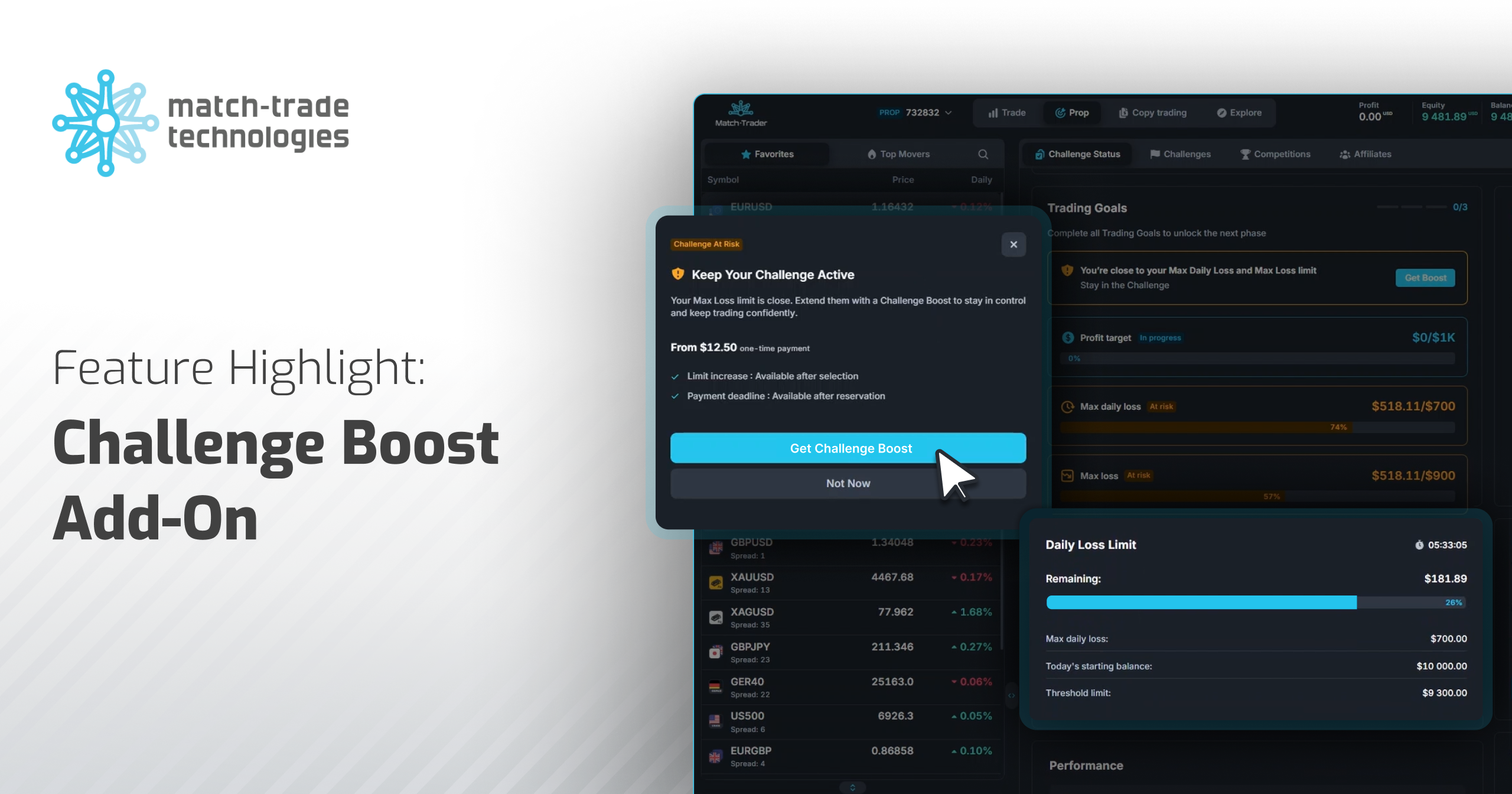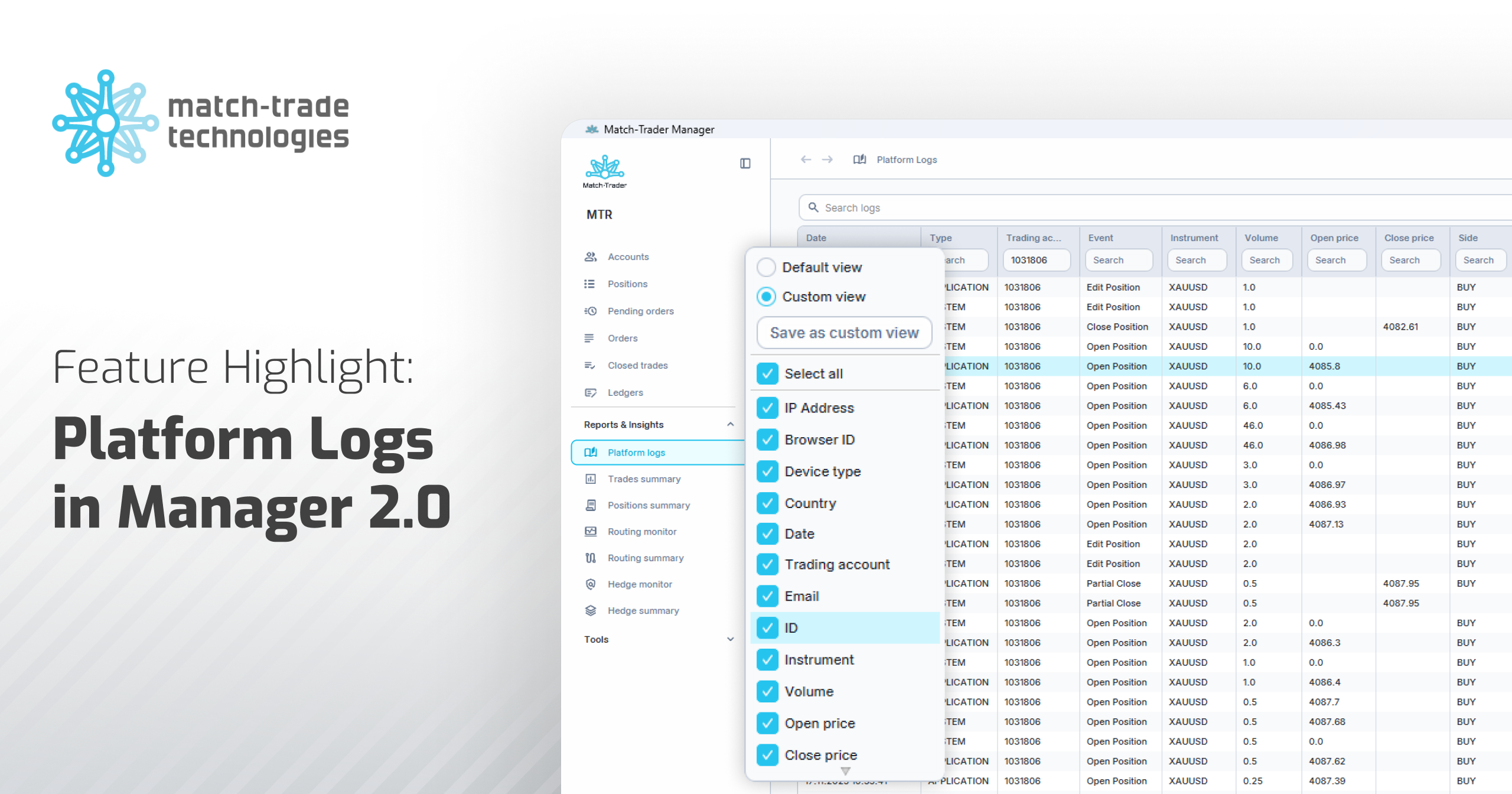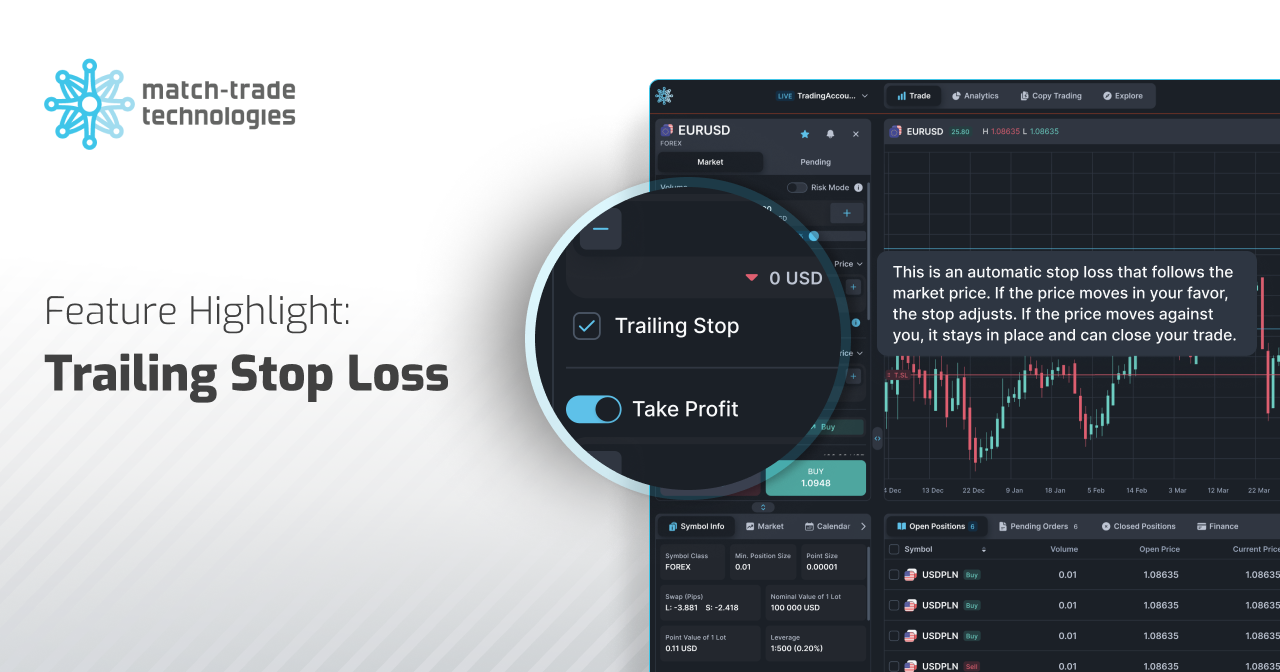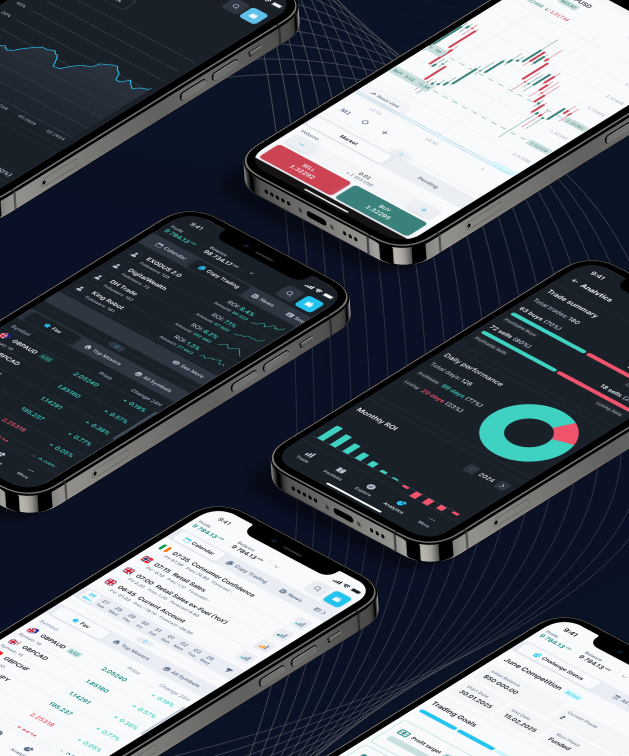Read the interview where Chris Dankowski talks about what retail forex and CFD traders have been trading in the last couple of years and what are the recent industry trends concerning retail trading.
Q: In 2017 Bitcoin’s bull market came to an end. It was a year of the great popularity of cryptocurrencies. How was it in the following years (2018,2019,2020)? Did you observe any meaningful trends or cycles in demand from the industry for cryptocurrencies trading?

A: For some time now, we have noticed a growing demand to adopt cryptocurrencies among various FX Brokers, especially those not regulated by strict law. Nowadays, the procedures to open a new bank account have become more rigorous, even for licensed Brokers, so they need to allow cryptocurrency payments to provide convenient deposit options for their clients. Here at Match-Trade, we provide technology and liquidity to manage deposits via crypto with the ability to exchange it to FIAT currencies before booking on trading accounts. Our solution offers hassle-free operations for traders, thus it is very desirable by Brokers. Additionally, there are companies operating without any bank units just by using cryptocurrencies that have become a universal way of making payments around the world. Since no institutions restrict them, cryptos are gaining more and more popularity, the same with stablecoins, such as Tether or USD Coin used as a substitute for USD payments. Companies can act as their own banks using crypto payments without any currency exchange rate or payment delays.
Q: Obviously traders are being attracted to the FX/CFD markets by growing volatility. Which market events in recent years could you name as the most important for clients and the industry when it comes to increased trading? Which sectors(fx, crypto, commodities) have played an important role here?
A: Without any exaggeration, 2020 was an excellent year for traders. With COVID causing enormous volatility on almost all asset classes, lasting a few months, we’ve noticed a significant upsurge in new and returning clients, who want to take advantage of this situation. Not only the pandemic, but also other events, such as the US elections and US-China trade war made a significant impact on the markets. But, it was hard to predict markets’ reactions. Investors were also paying a lot of attention to Central Banks as they tend to drive volatility, especially in equity markets. High government spendings and QE programs were also responsible for the forces behind the major market moves as well. However, they are usually less spectacular than black swan events such as the Brexit vote etc., as they are more extended in time.
Q: In recent years, we have seen the growing interest of brokers in shares based CFD trading. More and more brokers have been adding instruments based on shares or ETFs. Is it a must-have these days to have shares based CFDs?
A: We have noticed such a trend. Brokers wanted to broaden their offering to target stock investors. It is a good strategy because it allows them to cross-sell their products and attract new clients. Adding shares or ETFs won’t bring significant profits to FX Brokers, but their clients will be able to trade other instruments which are more profitable for investment firms. A lot of newcomers are more familiar with stocks rather than leveraged products such as CFDs, so trading shares can be a good starting point for them. The disadvantage of adding standard shares (without the leverage) is that clients can lock significant funds as margin for these types of instruments. The best way to solve this problem is to offer the option of using the funds locked for bought stocks as collateral for other transactions. It is possible with some platforms such as xStation, but it is not a very common option in the FX retail market.
Q: What do you think about zero-fee real stock trading? We have seen a few brokers introducing such trading to their offer. Do you expect more FX/CFD brokers going this way? How does it blend with traditional FX/CFD offers our industry is used to?
A: In my opinion, this strategy can be used by FX/CFD Brokers only as a temporary promotion because it is tough to maintain it in a longer perspective. Usually, the costs associated with offering stocks are relatively high. They concern market data, exchange and settlement fees or connectivity fees. Some fintech companies, like Robinhood, applied such a strategy. Still, they make a profit rather on selling clients’ trading information to other companies, which cannot be compliant with the law, especially in the European Union. Some more prominent Brokers can bear the costs of shares trading for the clients, counting that it will still bring profits on other types of instruments. It can be a good but also risky strategy if the company will attract too many clients interested only in trading shares. The other way of making such offers sustainable is to hide the costs in the spread as markup; then most clients will not be aware that they are paying any commission to the Brokers.
Q: As a liquidity provider, do you think there is more place in the FX/CFD industry for other instruments linked to traditional financial markets? Looks like the options never gained popularity among FX/CFD traders. Are there any other instruments outside of our industry that could potentially be used and offered to FX/CFD traders?
A: We believe that clients prefer simplicity and transparency, so the more sophisticated the product is, the less attention it will get. In other words, adding new, complicated products won’t make any sense as clients will treat it only as a bonus. Some Brokers even invent entirely new instruments which are either synthetic or randomly generated. Still, if there is no exact reference to the market, clients will not feel safe trading those instruments. I think that FX Brokers should invest more in crypto instruments and offer, for example, a set of indices based on cryptocurrencies and less popular coins. It is also worth noting that the Brokers did not adopt instruments based on CDS (Credit-Default-Swaps). Although, in my opinion, they could attract quite an interest among clients, especially in times of turmoils on specific markets.
Q: Which sectors of trading(fx, crypto, commodities, stocks/indices) do you consider to be the most important in the nearest 2-3 years. Where will most of the retail trading take place in your opinion?
A: From our observations, we can see that the popularity of specific asset classes heavily depends on the region. We see that Middle-East, India or South-East Asia is mostly interested in trading FX, precious metals and energy products. By contrast, investors in Europe, South America and Africa like to trade indices and a wide range of commodities, which usually have higher volatility than FX instruments. Also, crypto leveraged products are gaining popularity. From the other side, more and more crypto exchanges enter the leveraged market because they notice a certain trend among investors and seek the occasion to increase their trading volumes and profits. We think that crypto exchanges can at some point become real competition for FX Brokers because they can easily increase their product range by adding instruments used only by FX Brokers so far. On the other hand, we don’t see trading stocks as the main product, as it requires a lot of technical and legal resources to manage, and many specialized brokerage houses are offering them in much better condition.
Download the report here: https://match-trade.com/interview_q3_2020_matchtrade/





